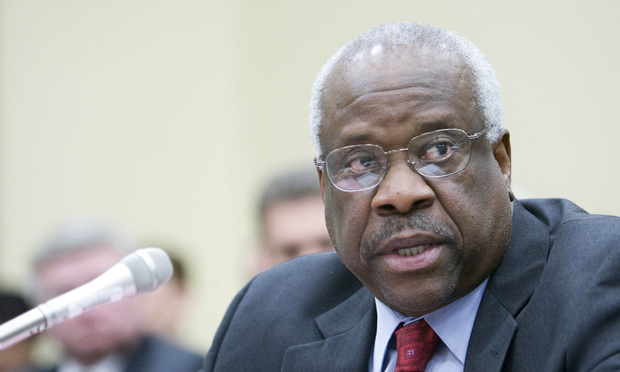The U.S Supreme Court on Monday ruled that an Ohio law criminalizing falsehoods about candidates during a campaign could be challenged before prosecution if there is a “credible threat” that the law would be enforced.
Justice Clarence Thomas wrote for a unanimous court in Susan B. Anthony List v. Driehaus, a suit filed against the the Ohio law, which is similar to statues in 15 other states.
In 2010, the Susan B. Anthony List, a political action committee that supports anti-abortion candidates, accused then-Rep. Steven Driehaus, D-Ohio, of voting “for taxpayer-funded abortion” when he voted for the Affordable Care Act.
The truth of that statement was debatable, but when Driehaus filed a complaint with the state election commission under the law, billboards making the charge were canceled. The dispute was never resolved, in part because Driehaus lost the election and he dropped the complaint.
The Susan B. Anthony List committee challenged the law in court as a violation of its free speech rights. But as the case went to the high court, the precise issue was not the constitutionality of the law but rather how serious the threat of prosecution has to be before the law can be challenged. The U.S. Court of Appeals for the Sixth Circuit ruled that the threat of prosecution under the Ohio law was not imminent enough.
Thomas stopped short of declaring the law unconstitutional. But, he wrote, “the burdens that commission proceedings can impose on electoral speech are of particular concern here.”




